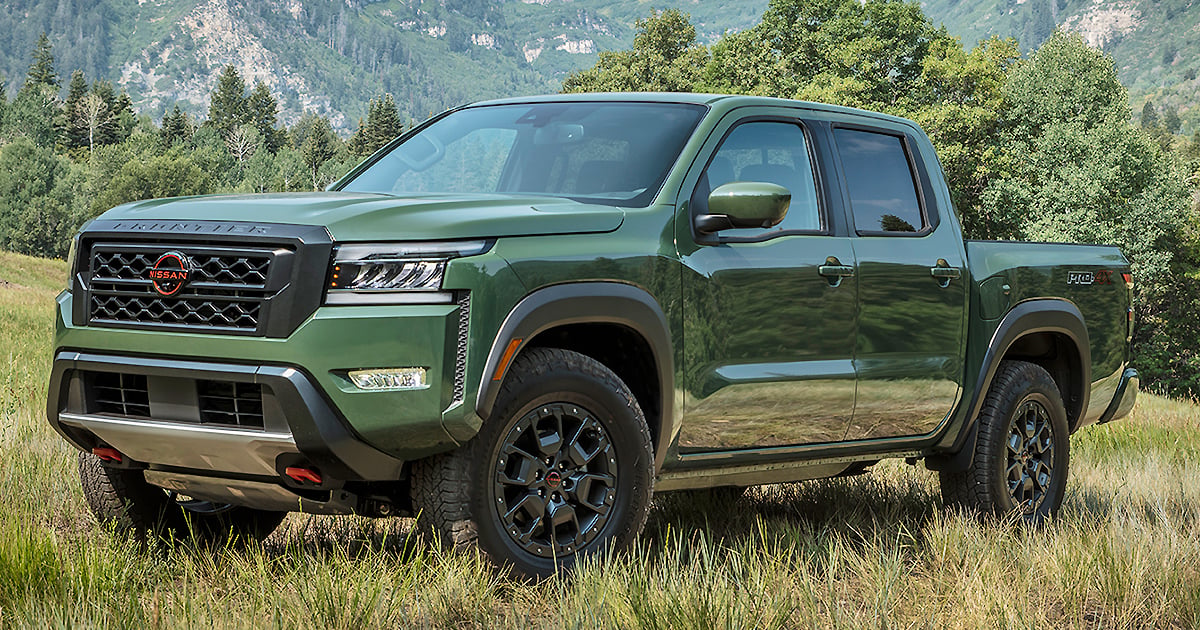
As Nissan pulls out of the Detroit-dominated full-size pickup segment next year, the Japanese automaker will refocus its attention and resources into a more competitive arena — midsize pickups.
But according to a supplier memo obtained by Automotive News, production of the current-generation midsize Frontier at Nissan’s factory in Canton, Miss., has been extended two years beyond its previously expected redesign, now carrying into the 2029 model year.
The previous Frontier went 17 years before undergoing its first major redesign in 2021.
In the memo, Nissan didn’t offer suppliers a reason for the life cycle extension, but one supplier briefed on the matter, who asked not to be identified, told Automotive News that the previously planned changeover would have come just as the Canton factory is gearing up to build new Nissan and Infiniti electric vehicles.
Nissan doesn’t want “a major model launch during the time that they’re starting up” EV production, the source said.
It is now unclear whether the pickup will receive another redesign, the person said.
One possibility is that the Frontier will reemerge around 2030 as an electric pickup, according to the supplier.
A battery-powered truck could boost Nissan’s drive to reclaim relevance in the EV segment it pioneered more than a decade ago with the Leaf.
A Nissan spokesperson declined to comment on future product plans.
AutoForecast Solutions Vice President Sam Fiorani said Nissan is already complicating operations at Canton by rolling out multiple EVs over the next few years.
“Pushing any electric Frontier out beyond these new launches avoids further confusion, as they need to get these new products onto dealers’ lots as soon as possible while keeping the quality up,” Fiorani said.
Keeping the profitable gasoline-powered Frontier on the market a little longer also will generate revenue to help Nissan invest in pricey product electrification while allowing consumer demand for EVs to firm up.
Nissan is investing $500 million at the 4.7 million-square-foot plant to initially build four EVs.
Production of a pair of battery-powered sedans for Nissan and Infiniti is scheduled to launch in 2026. Output of a Nissan electric crossover begins in early 2027, followed by an Infiniti crossover a year later, according to a timetable obtained by Automotive News.
Delaying the pickup’s redesign “gives the market time to mature enough to allow an electric Frontier to hit the ground running with high enough volume to make money,” Fiorani said.
Last year, Nissan sold 76,183 Frontiers in the U.S., up 26 percent from 2021. The supplier memo noted that Nissan plans to build 81,339 Frontiers for the 2028 model year and 65,599 for the 2029 model year.
Nissan first hinted at a lightweight electric pickup in 2021, when it revealed the outdoorsy activity vehicle concept called Surf-Out.
That pickup featured an open-back cabin for easy access to the bed and an advanced system of Nissan’s e-4orce all-wheel-drive electric drivetrain.
Speculation about Nissan’s battery-powered pickup comes as full-size pickup segment leaders Ford and General Motors electrify their iconic nameplates and EV kingpin Tesla readies to barrel into the high-margin segment with the Cybertruck.
But if the idea comes to pass, Nissan would aim for affordability, suggested Tyler Slade, operating partner at Tim Dahle Nissan Southtowne in suburban Salt Lake City.
“They don’t want to be in the Rivian or the Cybertruck space,” Slade said. “They want to be in the affordable $40,000 range.”
AutoPacific analyst Paul Waatti said pricing will be critical in the electric midsize pickup space.
“The segment will be highly contested,” Waatti said. “A Nissan midsize EV pickup must pack a ton of value and be positioned for mainstream affordability to retain visibility in the market.”
A 2030 time frame gives Nissan the runway for electric powertrain and battery technology to evolve and for costs to decline.
The new pickup could, for example, feature solid-state batteries, the holy grail of next-generation EVs. Nissan believes it can deliver a solid-state battery by 2028 that holds twice the energy of a lithium ion battery, charges in one-third the time and reduces cost enough to achieve price parity with gasoline-powered vehicles.
Nissan plans to begin pilot production of the advanced batteries at its Yokohama Plant next year.
A high-volume, zero-emission pickup will be key to Nissan’s sales ambitions.
It will also help Nissan meet tightening emissions standards. The EPA proposes drastically reduced vehicle emissions for cars and light trucks in the 2027-32 model years.
“Trucks, in general, are making [corporate average fuel economy] standards difficult for all OEMs,” Slade said. “A way to solve that problem is to turn the vehicle electric.”

